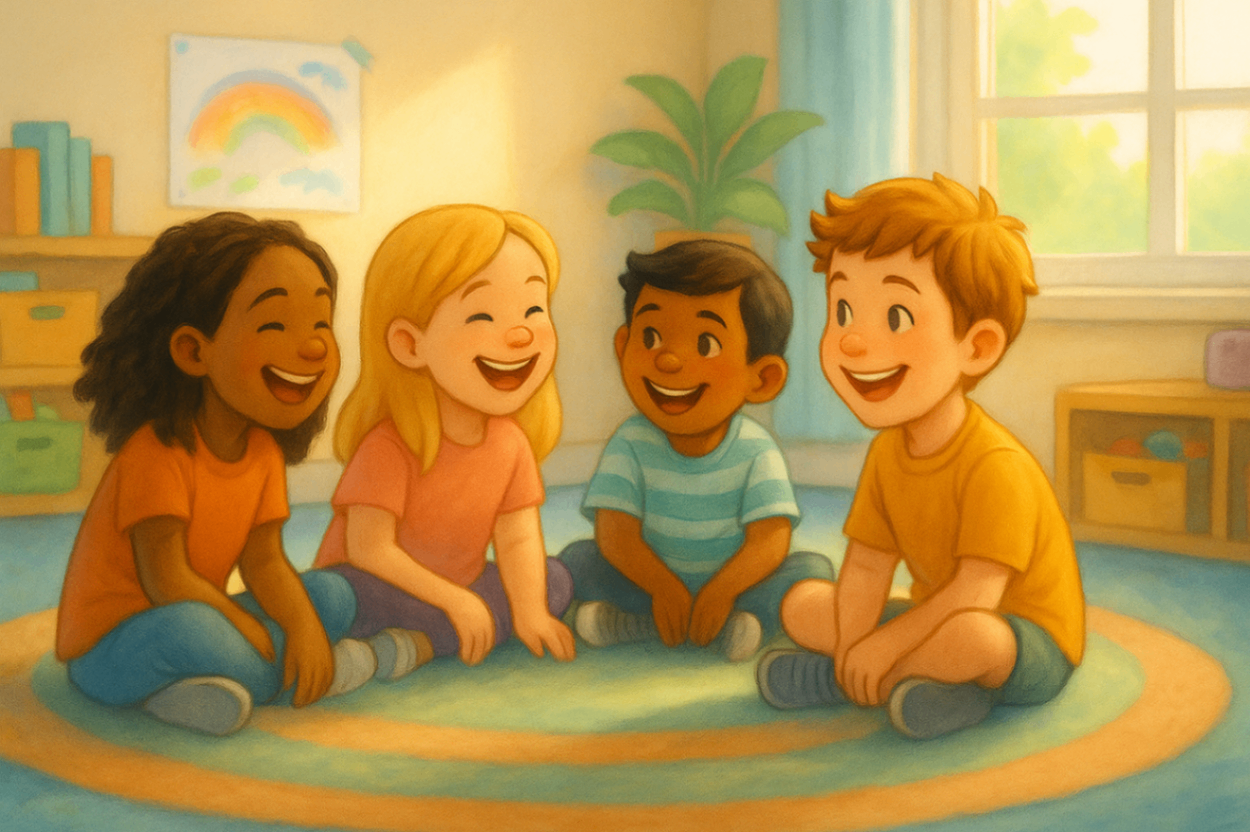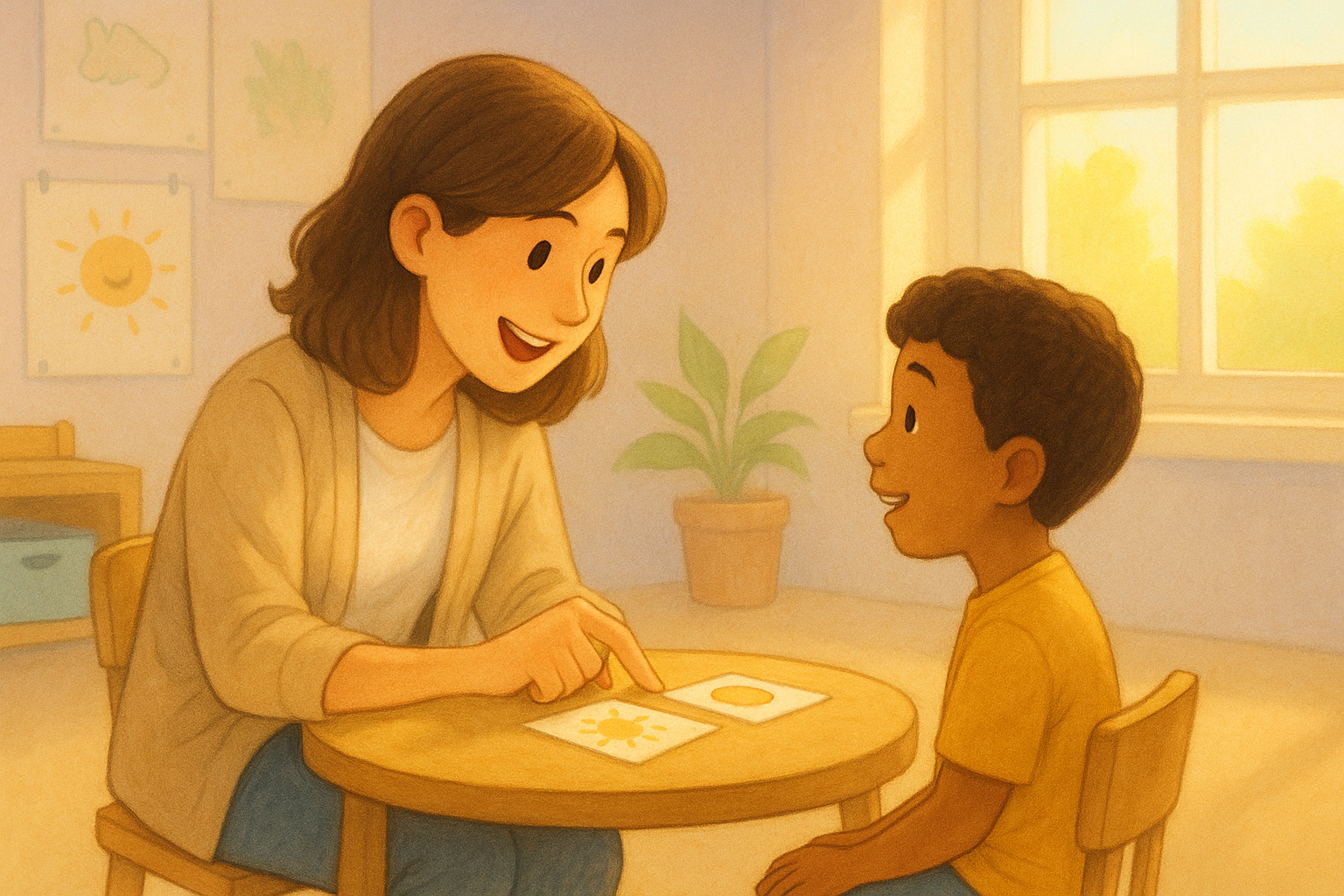
recognising the need for children’s speech therapy in liverpool
14 July, 2025
Getting Started with Speech Therapy in Liverpool
Is your child falling behind with first words or feeling left out during play? Our certified speech pathologists Liverpool support children with engaging, evidence-based therapy—whether in our Liverpool clinic or through in-home services across the surrounding areas. We turn quiet moments into confident communication.
Key Highlights
- Boost Confidence & Connection: Child speech therapy Liverpool empowers little ones to find their voice, conquer speech delay therapy Liverpool, and thrive socially and at school.
- Early Signs to Watch: From first words to clear sentences, early red flags—like limited vocabulary—signal the need for support.
- Local & In-Home Options: Expert speech therapy Liverpool and in-home speech therapy Liverpool available for families in Liverpool and surrounding suburbs (Casula, Moorebank, Cabramatta, Bankstown, Prestons, Chipping Norton, Ashcroft, Wattle Grove, Lurnea, Green Valley, Mount Pritchard, Warwick Farm, Hoxton Park).
Why Milestones Matter

Speech and language skills shape how children learn, connect, and feel understood. When milestones are missed, children may feel frustrated or fall behind socially. Through tailored child speech therapy, we help build vocabulary, sentence structure, and confidence from the very first session.
Typical Milestones for Different Age Groups
Speech and language milestones help people check how a child is growing. Each child gets better at their own speed, but there are some common things most kids do at certain ages.
|
Age Range |
Milestones Achieved |
|---|---|
|
6-12 Months |
Babbles, starts imitating sounds, says simple words like “mama” or “dada.” |
|
18-24 Months |
Uses up to 50 words, begins combining two words like “want toy.” |
|
3-4 Years |
Forms simple sentences, asks questions, and follows basic instructions. |
Parents need to check their child’s language skills and see how they match up with these common milestones. If you notice their skills are quite different, it’s a good idea to consult a speech pathologist for help. Getting early intervention can make a big difference. If your child in Liverpool or nearby suburbs isn’t hitting these milestones, early speech delay therapy can make all the difference.
7 Early Signs Your Child May Need Speech Therapy

It is important for parents to know the signs of possible speech or language problems. Watch for these signals:
-
Limited Vocabulary or Delayed First Words
A child's first words bring so much joy. Most kids start to speak between 12 to 18 months. If you see that a child’s vocabulary is not growing or he or she hasn't said any words by this age, you might need to help. Watch out for these signs:
-
Not knowing simple words or what someone says by the time they are 12 months old.
-
Not using hand gestures like waving or pointing.
-
Using less than 50 words when they reach two years old.
-
Difficulty Pronouncing Words or Sounds
Many struggles with clear speaking, but persistent issues may indicate a larger problem. A lisp or mispronunciations can stem from weak mouth muscles or developmental factors. A speech therapist can help improve clarity using specialised techniques. For instance, a lisp may hinder proper pronunciation of "s" and some might find it challenging to articulate letter combinations like "th" or "sh."
-
Not Combining Words
By 18-24 months, children should start forming simple sentences like “want toy” or “eat cookie.” Delays in this development may indicate language skill issues that could require speech therapy. When a child finds it hard to form complete phrases, it can hinder communication with others and make expressing needs difficult. Speech pathologists employ engaging activities in therapy to help children learn new words and construct sentences, laying the foundation for essential communication skills needed for school and friendships.
-
Struggles with Instructions
Following simple instructions is very important for building understanding and good communication skills. If your child finds it hard to follow phrases like “get the toy” or “sit down,” it may be a sign that help is needed. A few things to look for are trouble with understanding two-step directions by age three and always not finishing tasks because there is confusion about what to do.
-
Frustration When Communicating
Communication problems can make a child feel upset in many ways, not just when trying to use language. A child who finds it hard to share what they feel or want may have angry outbursts. The child might stay away from social situations instead of joining in.
Parents may notice things like the child not looking at people when talking or stopping a task if it needs them to explain with words.
-
Lack of Interest in Social Interaction
Children often talk and play with others. If your child does not seem interested in being with other kids, it may be a sign that they have delayed social skills or trouble with talking to others in social situations.
Avoiding group activities or not wanting to join playtime can show that there may be some needs in language development that are not being met.
-
Not Progressing with Reading or Phonics
Reading challenges can stop kids from doing well in school. These problems can show up when they have a hard time sounding out words or when they do not get how phonics work. Early therapy can help children get past a lot of these issues. A few important worries are:
-
Your child may have difficulty understanding how letter sounds work together to form words.
-
They might also struggle with basic reading comprehension and find it hard to put words into complete sentences.
Why Early Intervention in Liverpool Matters
Delays left unaddressed can impact learning and relationships. Our speech therapy Liverpool services are designed for families seeking timely, child-led intervention. Whether in-clinic or in-home, our programs include:
-
Personalised therapy plans tailored to your child’s needs
-
NDIS-aligned services that integrate with school and home life
-
Speech pathologist-led sessions focused on play-based learning
Why Choose Our Liverpool Speech Therapy Services?
If your child needs help with reading, phonics, talking with people, or language development, we offer speech therapy in Liverpool and places close by.
-
Local & Flexible: Options for in-clinic and in-home speech therapy Liverpool.
-
Certified Experts: Skilled in diagnosing and treating speech delay therapy Liverpool for ages 1–12.
-
Holistic Approach: From articulation drills to phonics and social-skills practice.
-
Play-Based Techniques: Sessions that feel like fun, reducing anxiety and building trust.
Contact our Liverpool Clinic today to book an initial chat and start your child’s journey to better, confident talking.
Summary
It's important to notice early signs that your child might need speech therapy. If your child has a small number of words, has trouble saying words, or gets upset trying to talk, these things may show they need more help. Giving support early can help your child grow strong communication skills, feel sure of themselves, and have better social skills. If you see these signs, talk to a professional about what to do. Our compassionate team offers expert-led child speech therapy Liverpool for children of all ages—designed to build connection, confidence, and communication. Proudly serving Liverpool and surrounding suburbs, we’re here to help your child thrive.
Frequently Asked Questions
How do I know if my child needs speech therapy in Liverpool?
Look for these key signs in your child—by 15 months most little ones say a clear word like “mama” or “dada,” and by age two they typically use 50 + words and simple two-word phrases. If your toddler in Liverpool is still babbling without forming words, has fewer than 20 – 30 words by age two, or shows frustration (tantrums or withdrawal) when trying to speak, it’s time to explore speech therapy Liverpool. Difficulty understanding simple instructions (“bring your shoes,” “get the ball”) by age three can also signal a language comprehension delay. A friendly screening with a qualified speech pathologist Liverpool will pinpoint your child’s needs and set the stage for confident, joyful communication.
At what age should I be concerned about my child’s speech development?
Concerns can come up if a child does not say their first words by 18 months. It is also a worry if they do not make sentences by the time they are two. Talking to a speech therapist during the first session is a good step. A speech therapist can check how your child is doing with language development and communication skills. They use early intervention to help your child get the support they need.
Are speech therapy services covered by the NDIS in Australia?
Medicare and the NDIS help pay for speech therapy and exercise physiology services for families who qualify. Some private health insurance plans may also cover speech therapy services. You can get in touch with local providers to find out what you need and what options there are for getting the right treatment.
AAMAX
.svg)

















